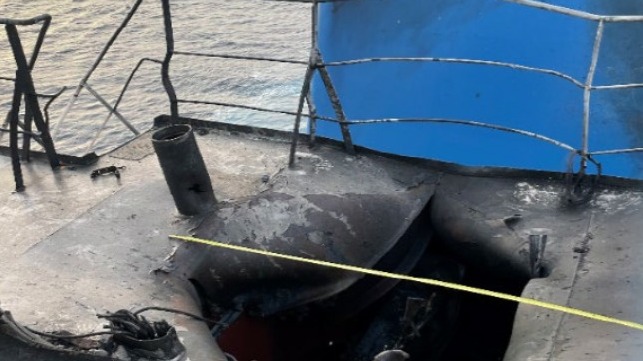War on the High Seas

The recent attack on the Israeli-operated tanker Mercer Street off Oman left a Romanian captain and a British security guard dead, killed by a drone packed with military-grade explosives.
The foreign ministers of the G7 group of nations condemned the Iranians for the attack, emphasizing their joint "commitment to maritime security and the protection of commercial shipping." Iran rejected responsibility and complained that it is the real victim of terrorism.
A few days later, the Panama-flagged tanker Asphalt Princess was entering the Strait of Hormuz when she was boarded by six armed men. They instructed the captain to sail to Iran, but the crew shut down the engines, leaving the vessel to drift powerless in the currents. The hijackers abandoned the vessel before Omani and British commando forces arrived on scene, and the vessel's crew was unharmed.
Shipping experts are keenly aware there is an undeclared war going on between Iran and Israel throughout the Mediterranean Sea, Red Sea, Arabian Sea, and the Indian Ocean. The back-and-forth attacks have been going on for years, and Israeli forces have targeted at least a dozen Iranian tankers since 2019, according to the Wall Street Journal.
This February, Israeli officials accused the Iranian tanker Emerald of deliberately releasing crude at sea, drenching almost 100 miles of Israeli beaches with a thick tar. On August 4, according to Iranian media, an Israeli Dolphin-class submarine was detected transiting the Red Sea in the company of two destroyers, a rare deployment that sends a clear signal to Tehran.
The G7 nations have warned Iran not to interfere with commercial shipping, especially in the Strait of Hormuz, which handles about 188 million barrels of crude per day. The strait is only 21 miles wide and is considered the jugular vein for crude oil transportation for most of the world.

that matters most
Get the latest maritime news delivered to your inbox daily.
The United States imposed crippling sanctions on the Iranian oil industry in 2019, but Iran has managed to keep the taps open. In fact, the Iranians have been moving large amounts of crude to China, and India has signaled its readiness to buy Iranian oil when sanctions ease. Iran’s huge $2 billion investment in Jask Port, Hormozgan Province - which lies strategically below the Strait of Hormuz and exports about 1 million barrels of crude per day - has helped to take the pressure off.
U.S. President Joe Biden and Israeli Prime Minister Naftali Bennett are expected to meet on August 26 to discuss regional and global security concerns.
